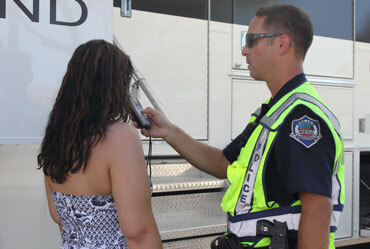Search

It is tremendously frightening to be charged with a DUI or DWI, but there are different ways of coming up with a strong defense. The right defense will depend on the conditions of the arrest, what was provided as evidence, and how police handled the investigation.
The following are some effective defense strategies for DWI/DUI cases:
In every DWI/DUI case, one of the initial grounds for the accused’s defense is the illegality of their stop. There is nothing as simply stopping a car or bothering an individual without any probable cause. DWI/DUI defense attorneys at our firm can prove that the officer did not have any reasonable suspicion or probable cause, making the evidence got from the stop, including the breath test, inadmissible in the court, and making the state’s case less strong.
Sobriety Tests (FSTs) as highlighted are inadmissible because they are subjective. The failure to pass a sobriety test can also be a probable cause for your arrest, as well as acting as the evidence in your case in case of trial. Our DWI/DUI attorneys are fully aware that these tests are inconclusive.
Specifically, the same tests when conducted has shown that officers were only right 82 percent of the time when they were conducting the walk-and-turn, one-leg stand and the horizontal gaze nystagmus tests. The following reasons could adjust:
Breath tests are very popular in assessing BAC; however, they are not devoid of weakness. Several factors can affect the accuracy of breathalyzer results, such as:
Inhalation Pneumoconiosis Lung Disease: If you BAC was computed based on blood samples, your lawyer might argue about the manner in which those samples were obtained, preserved and tested. Blood samples need to be treated very carefully to prevent contamination of sample or deterioration of the blood. Any negligence could result in distorted outcomes which makes our professional DWI/DUI lawyers to have a basis on which to object to the admissibility of the evidence. Arguing Rising BAC Levels Occasionally, a person’s BAC could increase between the moment he or she was brought in for questioning and the moment the test was conducted.
Some substances are slow in their ease of absorption into the blood stream and alcohol is such a material; it could actually be below the limit while operating the car, yet be above it in the test. This defense is especially easy to make if there was a gap between the traffic stop and the breath or blood test. This paper focuses on two areas of violation of the constitution as well as procedural fairness, namely; Police officers and in a broader sense if the state has very high standards when it comes to arresting, charging, investigating or even interrogating any person.